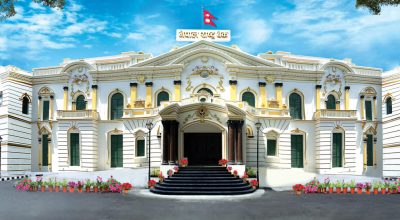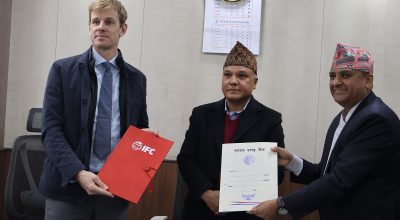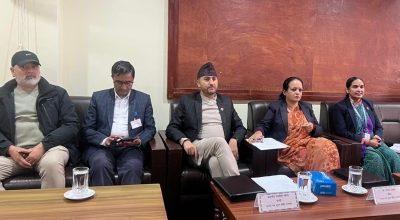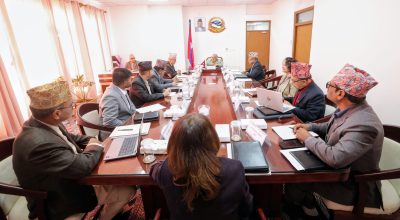
The Asia-Pacific Economic Cooperation (APEC) plays a significant role in promoting economic governance around the world. As a key regional cooperation platform, APEC brings together 21 member economies, representing nearly 60% of global GDP and half of global trade, making it a critical force in shaping global economic governance. In the present scenario of global uncertainty, APEC’s fairer role and inclusive contribution are highly expected around the world. The APEC meeting this month has sent a positive message, but challenges and problems are abundant to concentrate on and address collectively.
One of the main significances of APEC lies in its commitment to open and free trade. APEC member economies are champions of promoting and facilitating trade liberalization and economic integration. Through discussions, negotiations, and initiatives, APEC works towards reducing trade barriers, harmonizing regulations, and promoting fair and transparent trade practices. By fostering a more open and connected region, APEC facilitates the flow of goods, services, and investments, ultimately driving economic growth, job creation, and higher living standards.
The world has greatly benefitted from the creation of the Asia-Pacific Economic Cooperation (APEC) in 1989. Three decades ago, Asia-Pacific leaders were faced with the question of where mankind was headed in the post-Cold War era.
The leaders of the area shed the constraints of bloc hostility and the zero-sum attitude, marking a significant shift from the adversarial narratives that characterized the preceding decades.
Since then, their combined efforts have ushered in an era of never-before-seen levels of economic cooperation and integration, culminating in the idea of an Asia-Pacific region that is vibrant, peaceful, and prosperous.
The success of APEC is rooted in real accomplishments as well as aspirational objectives. It has supported structural changes, lowered tariffs, and harmonized regulations in recent years, creating an atmosphere that is favorable to economic cooperation. Seventy percent of the increase in the world economy over the last thirty years has come from the Asia-Pacific region, which has seen its average tariff rate drop from seventeen percent to five percent.
APEC also promotes economic partnership through its focus on inclusivity. As a platform that brings together economies of different stages of development, APEC recognizes the need to promote the equitable sharing of benefits from economic growth. Examples of this include APEC’s efforts to promote small and medium-sized enterprise (SME) development, as well as enhancing infrastructure and connectivity in less developed areas of the region.
In the Asia-Pacific region, per capita income has more than doubled throughout this time, and one billion people have been pulled out of poverty. APEC’s future endeavors can be guided by its past experiences as it continues on its journey. Members with disparate political and historical backgrounds had first endeavored to find common ground when it was formed, laying the groundwork for a future revision that would redefine the basic structure of regional economic cooperation.
The political and economic systems of the APEC economies differ greatly from one another, according to Atsushi Koketsu, an emeritus professor at Yamaguchi University in Japan. According to him, the region can only experience significant economic growth through the principle of finding common ground while retaining distinctions if all members carefully examine each other’s development conditions, value one another, foster mutual trust, and encourage cooperation.
The Asia-Pacific Economic Cooperation (APEC) need to work fairly with promoting economic partnership through its commitment to openness, inclusivity, and mutual cooperation between its member economies. APEC provides a platform for its member economies to engage in dialogue and cooperation on a wide range of economic issues, supporting the growth and development of all its members.
A key aspect of APEC’s approach towards fair economic partnership is its commitment to promoting free and open trade. This has been demonstrated through the establishment of initiatives such as the APEC Free Trade Area, which aims to lower trade barriers between member economies. By facilitating freer trade and investment flows, APEC supports the equitable growth of all its member economies, fostering economic development and prosperity across the region.
APEC works towards promoting economic partnership by facilitating mutual cooperation between its member economies. This is exemplified by its efforts to promote joint initiatives in areas such as education, research, and development, which support cross-border collaboration and knowledge-sharing. For example, APEC’s Science Prize for Innovation, Research and Education (ASPIRE) recognizes young scientists from the region who have made outstanding contributions to scientific innovation, supporting the development of human capital in the region.
According to Lucio Blanco Pitlo, research fellow at the Asia-Pacific Pathways to Progress Foundation, a think tank in the Philippines, it is imperative that member economies of the region “discuss the importance of renewing their commitment to free trade, and to prevent the geopolitical issues from affecting an unimpeded flow of commerce, goods, and people across these member economies.”
Overall, APEC’s approach towards promoting economic partnership is characterized by its commitment to openness, inclusivity, and mutual cooperation between its member economies. Through these efforts, APEC supports the equitable growth and development of all its members, promoting greater prosperity across the Asia-Pacific region and beyond.
APEC is known for its inclusive approach to economic governance. It brings together economies of various stages of development, allowing for dialogue and cooperation among developed, developing, and emerging economies. This inclusive approach recognizes the importance of addressing the diverse needs, challenges, and opportunities faced by different economies. By fostering dialogue and cooperation, APEC promotes mutual understanding, builds trust, and facilitates the sharing of best practices and knowledge between member economies.
APEC also recognizes the importance of sustainable and inclusive growth. APEC member economies actively work towards promoting sustainable development, advancing environmental protection, and addressing social issues. APEC’s efforts in promoting sustainable economic growth are aligned with the United Nations’ Sustainable Development Goals, encouraging member economies to adopt policies and practices that are socially, environmentally, and economically sustainable.
In summary, APEC’s significance in promoting economic governance in the world lies in its commitment to open trade, inclusive approach, focus on sustainable development, and fostering cooperation on pressing global economic issues. As a platform for economic dialogue and cooperation, APEC should contributes to shaping global economic governance, fostering economic growth, and enhancing the well-being of people in the Asia-Pacific region and beyond.
















